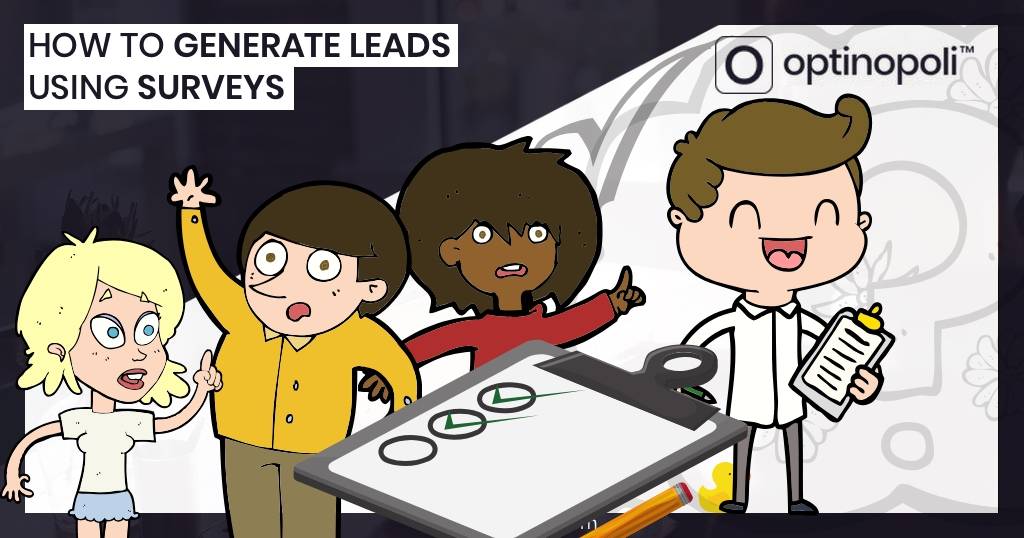
How to Generate Leads Using Surveys
The common way to attract leads for your business is to offer one or more lead magnets in exchange for visitor email addresses.
But what if there was a lead generation strategy that also helps you find out more about your market, segment your leads, and increase your revenues?
Enter surveys. This post shows you how exactly how to use them for lead generation and more besides.
As you'll see, they can be surprisingly effective, and provide valuable marketing and revenue-building opportunities you may not have previously considered.
How to generate leads using #surveys #leadgeneration via @optinopoliClick To TweetYou'll discover:
- More about the key advantages of surveys for lead generation.
- How to use surveys to generate leads from content marketing.
- How to use surveys to segment your list while generating revenue (including a case study).
- How to design your survey.
- How to create your own survey.
- How surveys actually generate leads.
- Some advanced tips to explode your results.
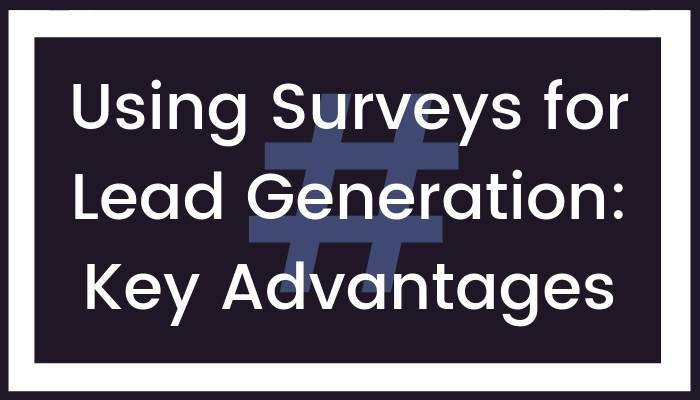
As well as generating new leads, surveys give you some key advantages:
- They give you valuable insights about your market.
- You get valuable data about each new lead, enabling you to effectively segment your list for more personalized messaging.
- They show you're willing to listen and respond to your market, which can deepen engagement with your audience.
Overall, surveys mean you can:
- Increase response levels of your leads.
- Grow your ROI, helping you to scale more effectively.
- Grow your business revenues.
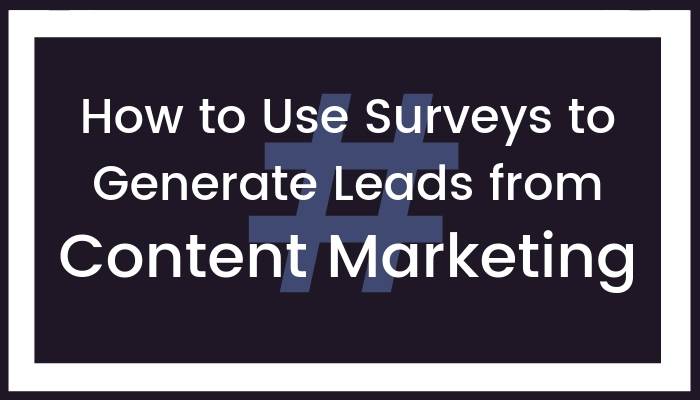
Surveys are an effective way to generate leads from various content marketing activities, whether on your website or beyond.
Take social media for example. Surveys helps to engage them and convert followers into leads.
Here are a couple examples of how you might do this:
- Provide a link to the survey via a standard social media post.
- If you do live video streaming on social, let people watching know about your survey and how to take part.
- In communities like Facebook or LinkedIn Groups, or even Tweet Chats, ask people to complete a survey for your market research.
It's not just social media.
For another example, take podcasts.
Just as with social followers, surveys help convert podcast listeners into leads.
As an example, Rob Walch has been doing this for years in his Today in iOS show. The approach he uses is very simple but effective:
- He lets listeners know about a demographic survey they can fill in.
- In return he sends them a free gift.
You can use a similar approach with other types of content marketing such as video content, articles, blog posts and so on.
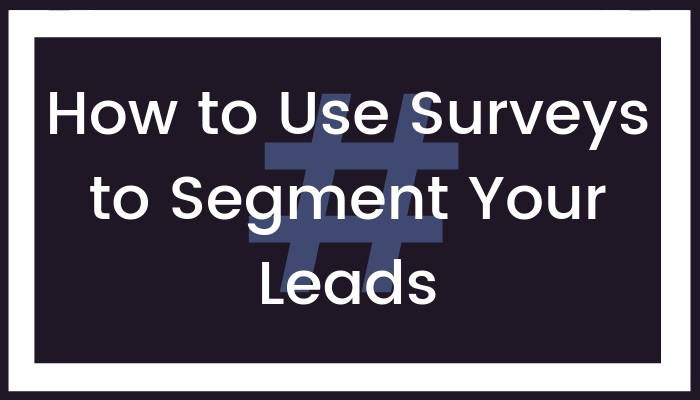
Use surveys to not only segment your leads but, while you do so, grow revenues too.
Here's how...
As an example of someone using this approach, digital agency adviser Jason Swenk surveys new leads as soon as they opt in via the thank you page.
This allows for immediate segmentation. The very first question determines which campaigns that lead then goes through.
It means his content can be highly personalized to the different segments of his audience, thereby amplifying response.
For example, the agency owners on his list will need different types of help depending on the level of revenue they’re currently at. Those just starting out will of course have a very different set of needs compared to more established players.
How to use #surveys to segment your #leads—and #growrevenue via @optinopoliClick To Tweet... and increase revenue
Jason uses his survey to grow revenue too.
Note that if using this approach within an advertising campaign, this strategy can help to immediately offset some or all of your lead acquisition costs.
Jason's survey is very simple. He asks just a couple of questions on a couple different pages, after which the new lead sees an upsell which is specifically targeted to them based on their responses.
You might think that only a small proportion of leads would actually finish the survey...
Remarkably, he found that 95% of new leads finish the survey.
It's not just B2B either. The same principles are likely to work just as well in B2C businesses too.

Keep it simple...
Don't think surveys have to be complicated.
You can start out attracting leads by asking a simple yes/no question on a basic popup. You're not even requesting an email address at this point.
For example, let’s say you sold lead capture software.
The first question might be, Do you need to convert more website visitors into leads?, followed by a couple of Yes/No radio buttons.
You then process their responses accordingly:
- If Yes: let them know you can help, and invite them to enter an email address and potentially other details to find out how.
- If No: offer them something else, still requesting their email. Remember the No can mean a variety of things, and may not always be truthful. Test different offers to maximize opt-ins. For example, they could be offered something to help them with converting the leads they already have.
Decide on your goals
Design your own survey by first figuring out what your goals are.
Obviously, one goal would be to get more leads. But what else? Consider the following:
- How could you segment your leads in ways that would help grow your business? What questions could you ask to do that?
- What would be useful to know in terms of your market's needs and aspirations?
For example, the following survey would help you better understand your market, and whether your website met their needs. Ask them:
- How they rated your website design.
- What they were looking for when they arrived on your website.
- How they felt about the experience on your website.
- How likely they would be to recommend you to others (e.g. 1-10), and why.
- What they wished you had available for them.
Increase engagement, and the likelihood of someone completing your survey, by asking them to take a simple step first with near-zero friction. It could just be Yes/No radio buttons with a basic easy-to-understand question.
Once someone has taken a first step and started to engage, they are more likely to answer follow-up questions with higher friction levels, such as those that require typed-in information.
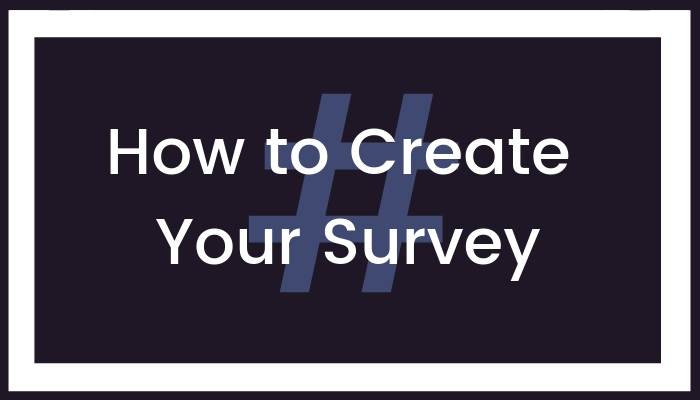
One of the most common platforms people use is SurveyMonkey.
It’s easy and quick to set up, and they give you a number of templates you can use to suit what you’re looking for.
Here's a quick run through of how to get started using their service.
- Sign up for an account at SurveyMonkey, or log in if you already have one.
- Start creating your survey by choosing the Build it myself option.
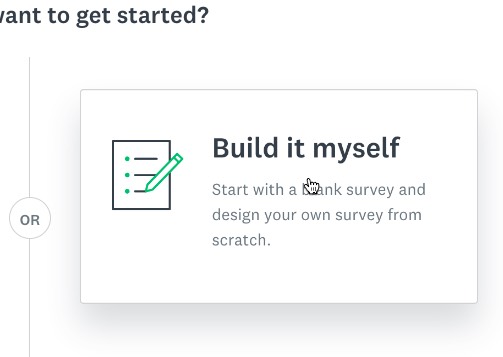
- Enter a suitable name for your survey, and choose a category (just choose Other to start with if you want). It's best to have already designed your survey, so have some questions ready and tick the checkbox provided. Click Create Survey.

- Follow the instructions provided to add your questions.

- You can then customize your survey as required, including adding a logo, adjusting the survey name, adding a page title, and adding or adjusting questions. Once you're happy, click Next (towards top right of page).
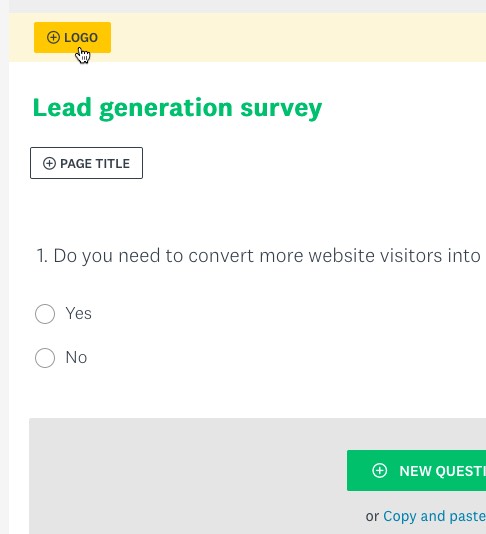
- It will then show you a preview. Edit further if required, or click Collect Responses.
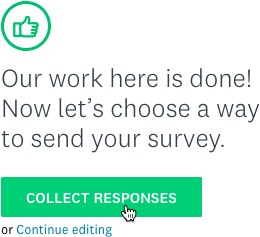
- On the next page, skip the questions popup.

- You'll see a number of ways to present your survey, including via a web link.
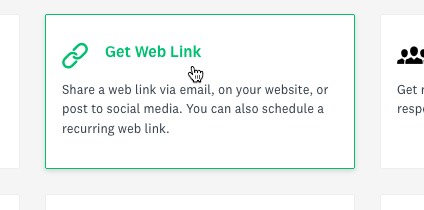
- If choosing the web link option, try using the link for a Click campaign in optinopoli™ to present your survey in different ways such as via a Lightbox Popup or maybe a Smartbar at the top or bottom of your website. Enter the SurveyMonkey link provided.
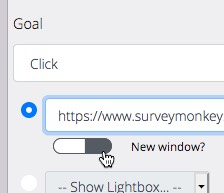
How do you use SurveyMonkey to collect leads?
There are a couple options.
Free account
The free way is to add questions to your survey that request the respondent's email address, and maybe their name.

You can incentivize it at this point by phrasing the question such as To get your free copy of [name of your Lead Magnet], please enter your email address.
However, while free, you would then need to manually add the collected email addresses to your autoresponder. As well as adding workload, it would of course delay any communication with your respondent, reducing to some extent the value of the lead for your business.
For a more efficient method, try using an...
Upgraded account
By upgrading, you're able for example to send respondents to a link of your choice once they've completed the survey.

An easy option would be, for example, to send respondents to a Landing Mat where you can:
- Thank them for completing the survey.
- Ask them to enter their contact details in return for whatever incentive or Lead Magnet you are offering.
This type of page only takes a few minutes at most to create, and you don't need to be a web developer.

The basic principle is to offer the visitor something of value at some point during the survey in return for their email address. This could be offered in return for:
- Completing the survey, in which case you'd mention the offer right at the beginning.
- Something else you offer once they have completed the survey.
Your offer might be one of the following:
- Sharing the results of the survey with them. This can work well in markets where people will be interested in what you find. For example, if your market consists of content marketing professionals, and your survey relates to content marketing, they're likely to be interested in the results.
- An attractive discount. This might work well in B2C markets for example. Ask for their email address in order, for example, to send them the special discount code they need.
- The type of lead magnet you might ordinarily offer, even without the survey. For example, a report, one or more video(s), free training, and so on. You could even offer to send them something printed in the post, and in exchange get their full address details.
Test different offers. The more attractive you can make your offer, the more leads you're going to generate.
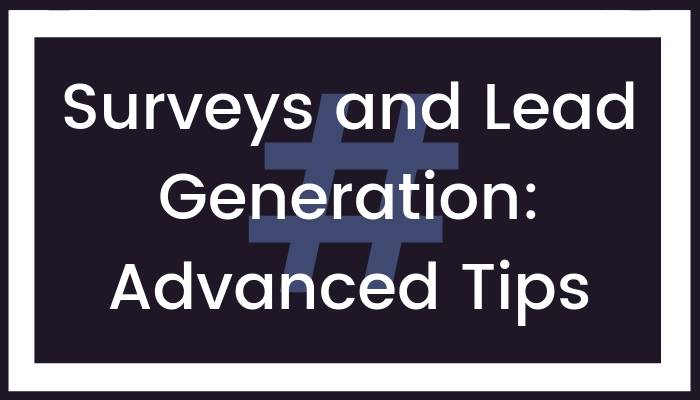
Personalization
You can quickly build strong relationships with leads when you address their responses on a personalized level.
This can include some element of automation, where, as referred to already, the messages they receive automatically after completing the survey reflects the answers they provided.
But the effect is far stronger when it involves an element of personal outreach, such as from someone on your support team.
For example, the survey may allow the visitor to enter in comments, in addition to selecting pre-defined responses or answering basic questions.
If someone from your company then connects with the individual personally to thank them for their comments and respond directly to them with helpful advice or information, it can leave a lasting impression.
This can also assist word of mouth marketing, simply because this kind of experience is relatively rare, and one they may well mention to others. After all, most people are used to anonymous marketing approaches that don’t treat them as individuals with their own unique requirements. Doing otherwise stands out a mile.
Advanced tips on using #surveys for #leadgeneration via @optinopoliClick To TweetContent Marketing
Want to significantly accelerate the number of leads your survey can generate for your business?
Here are a couple of main ways you can use content marketing to do just that.
Fill the information gap
First, design your survey to help inform what type of information your market is looking for, such as their needs, concerns and gaps in their knowledgebase.
Then create content to match. This helps:
- Align your business more precisely with your market.
- Increases your visibility for them, such as on search.
- Accelerates the number of leads you're generating through the additional, targeted traffic you attract.
Authority content
Second, use the findings of your survey as the basis of a whitepaper that shares your research with the world, and builds your authority as an industry leader.
This encourages other businesses in your market to link to you, sending often high quality traffic and new potential leads.
After all, other people creating content love to link to research and data to help prove their points and add depth and substance. As they do so, your authority can grow substantially.
After creating and publishing your whitepaper, reach out to relevant blogs and industry influencers to let them know. For best results, make it really easy for them:
- Find specific posts where your research could be referred and linked to.
- Point out exactly where this would work well.
- Provide the exact text and html link code they would need to slot into the post, which they can then of course adjust as required.
It means they can add value to their content quickly and keep it up to date with a minimal level of effort.
Improve Your Website
The insights gained through your survey can be extremely valuable in terms of better understanding your market, and adjusting your website, your products and services to suit.
By fine tuning your website and business in this way, the impact on the number and quality of leads you generate, as well as your business revenues, can be significant.
To Conclude
As we have seen, surveys can be a very useful tool to generate leads from traffic to your website, as well as helping to convert audiences from elsewhere such as social and other content platforms.
In addition they also help you generate quality traffic, build your authority, and grow revenues.
So what's not to love?
They're easy to set up and implement too, so consider adding surveys into your marketing mix, and enjoy all the benefits they can deliver.
How to generate leads using #surveys #leadgeneration via @optinopoliClick To Tweet
steve shaw
Steve Shaw is the CEO of optinopoli™, next-generation lead capture and sales conversion technology—click here for more info.
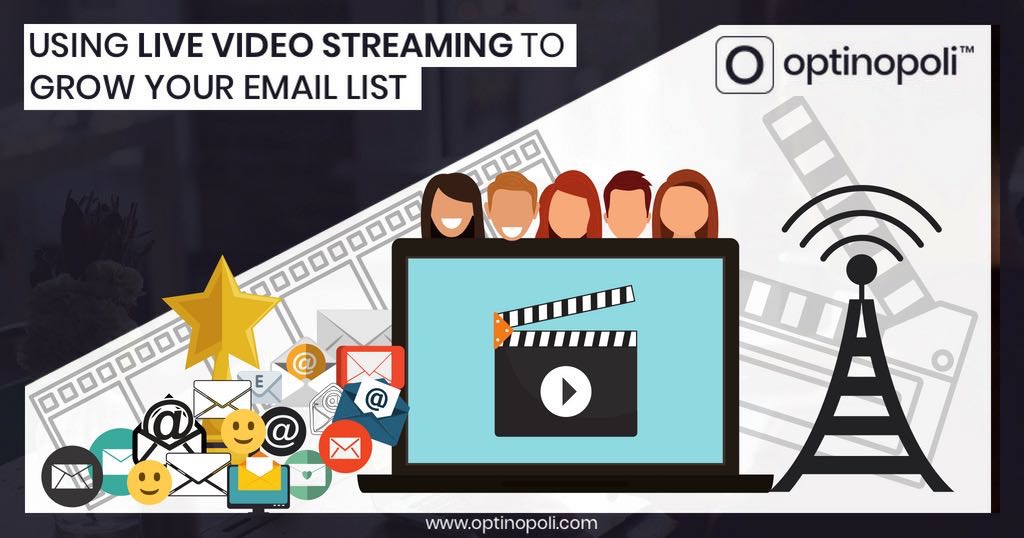
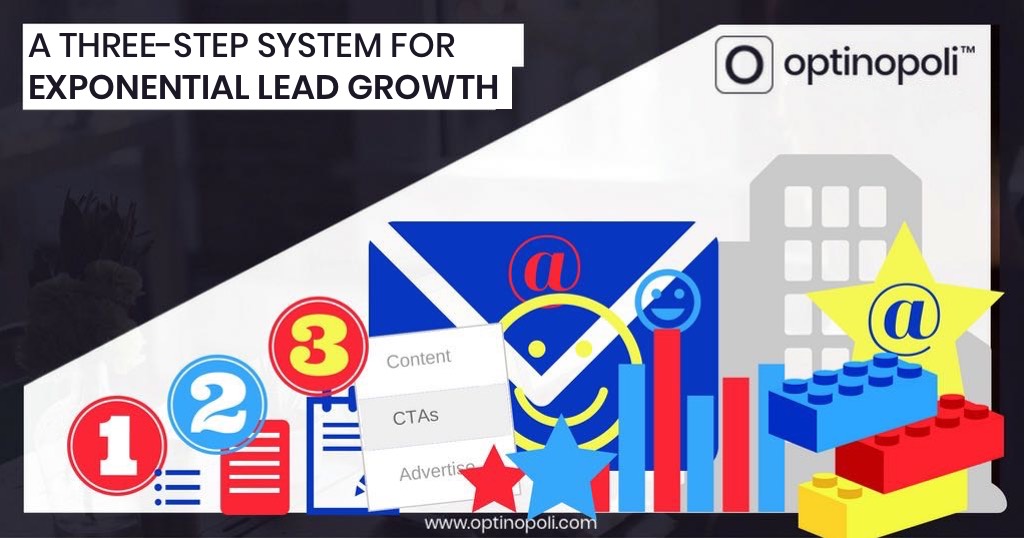
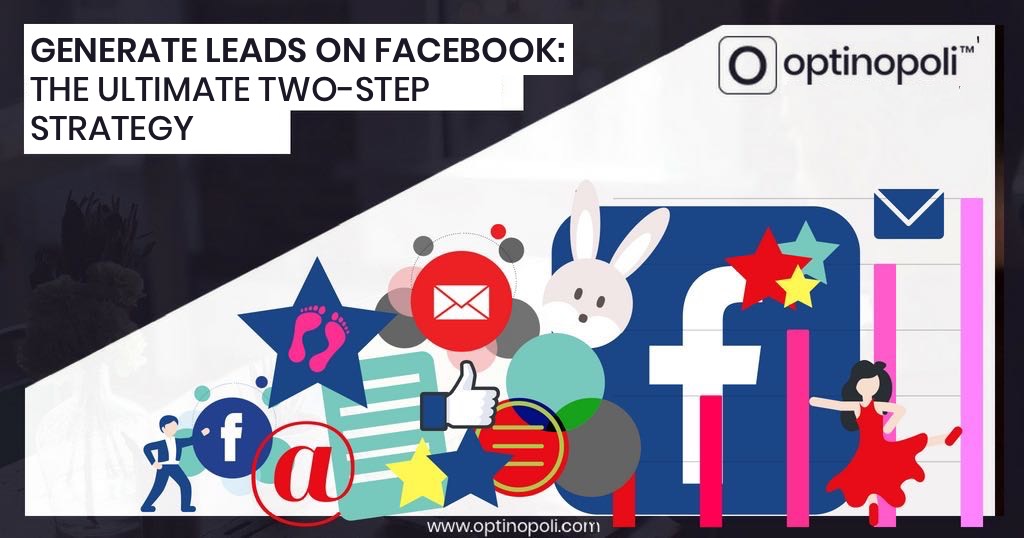
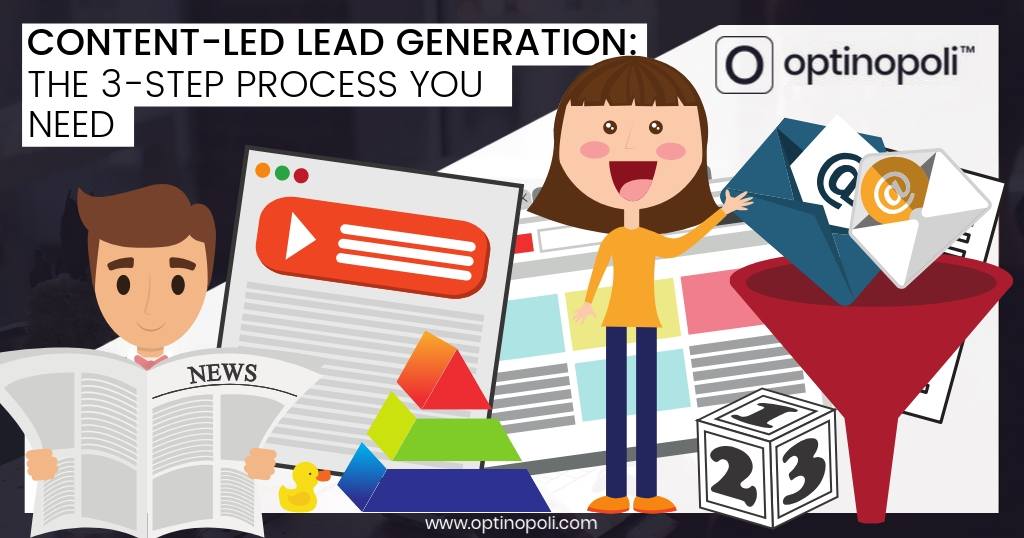
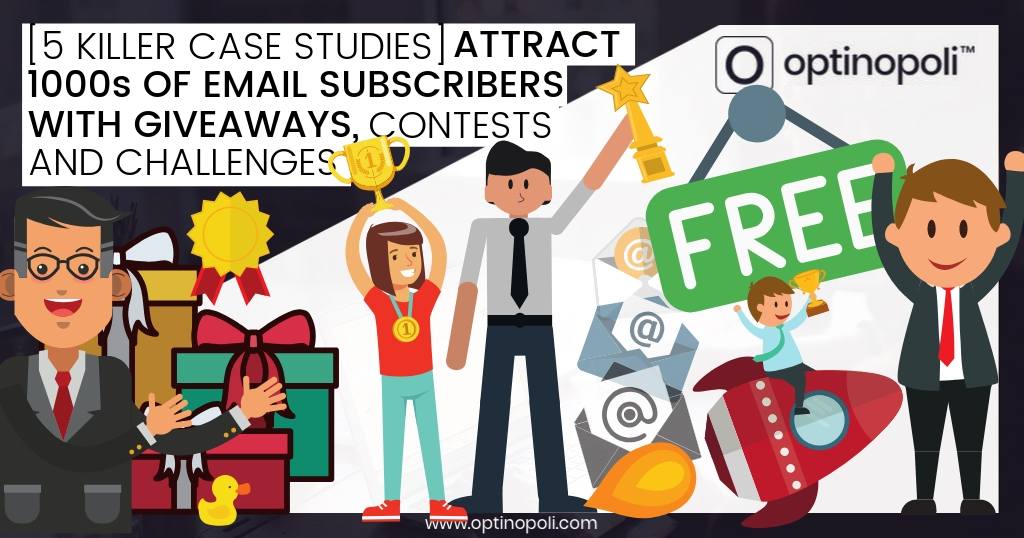
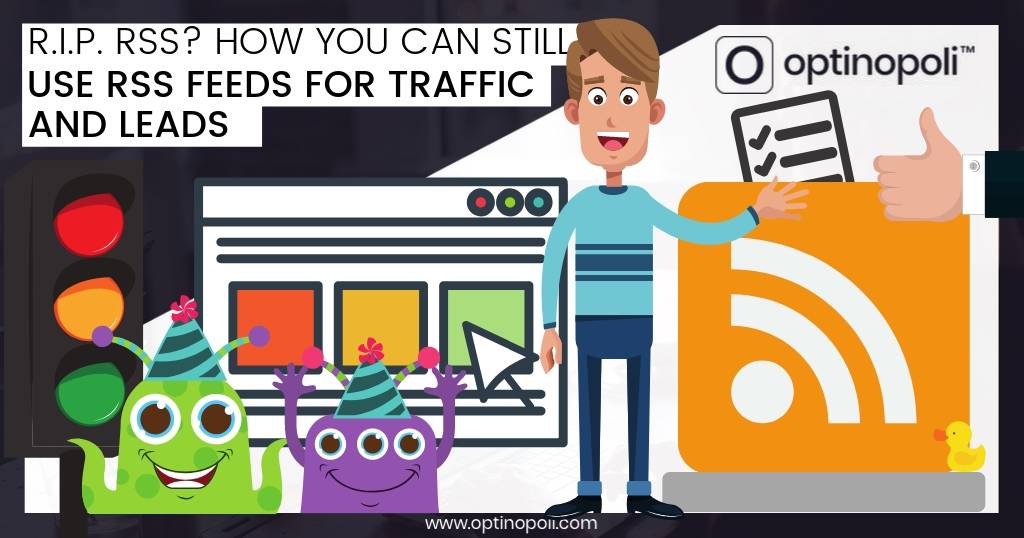
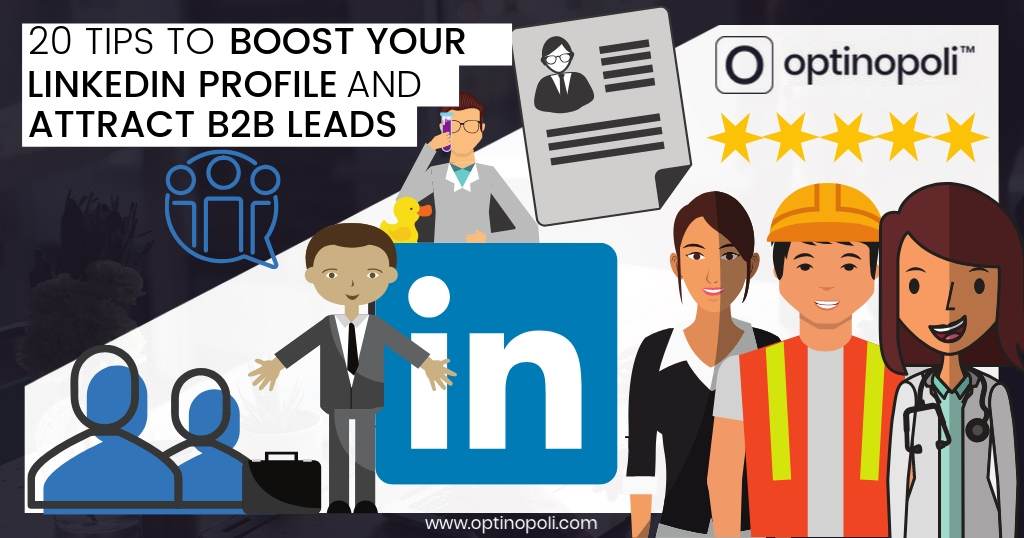
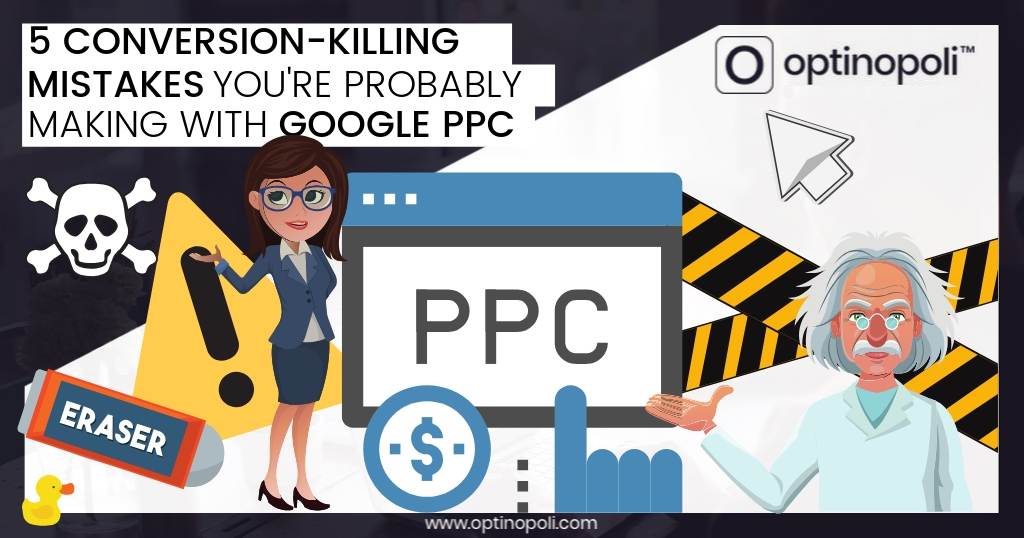
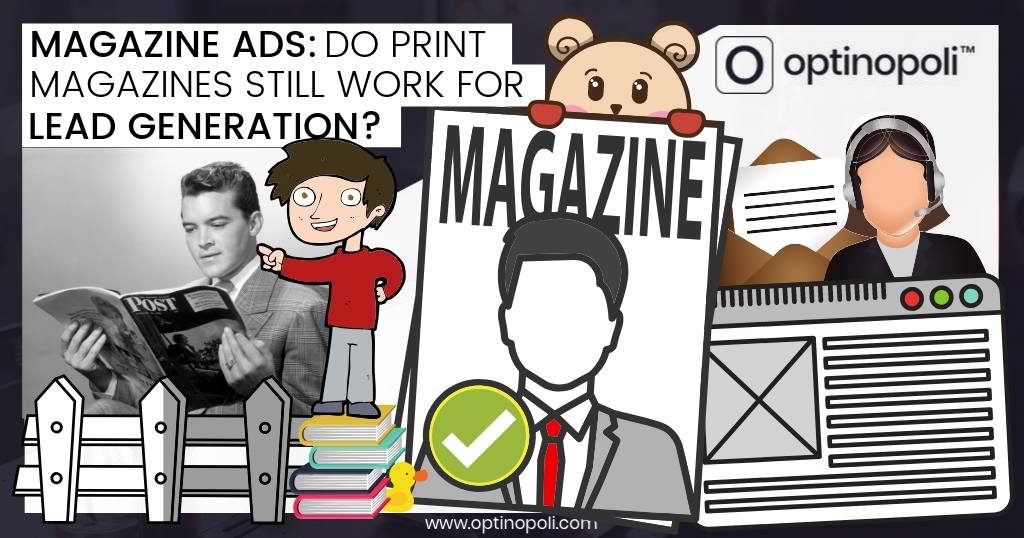
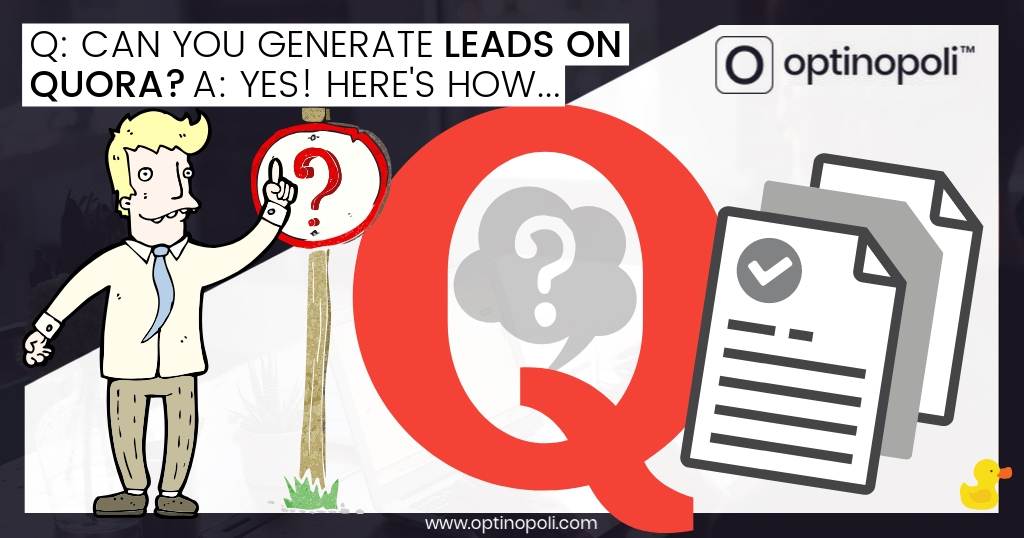
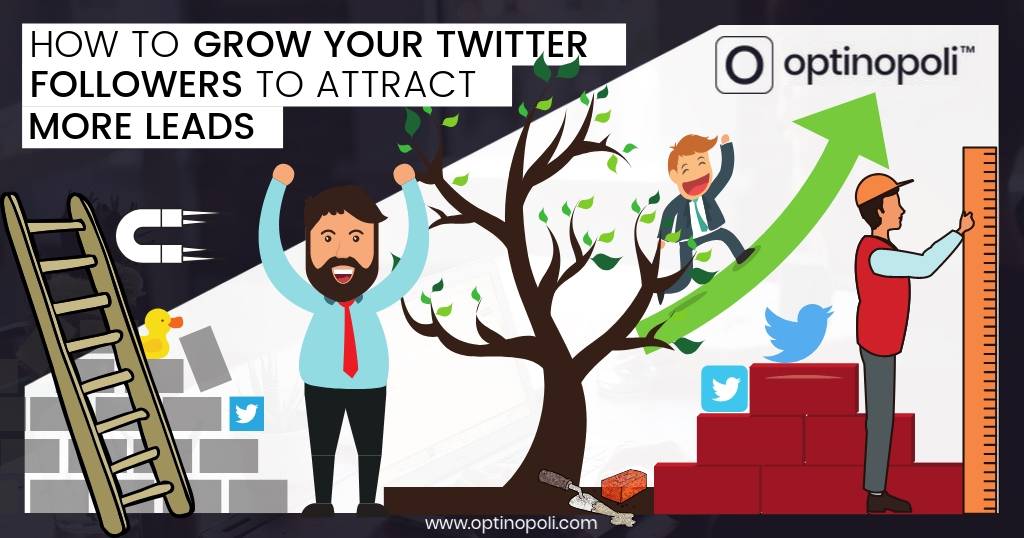
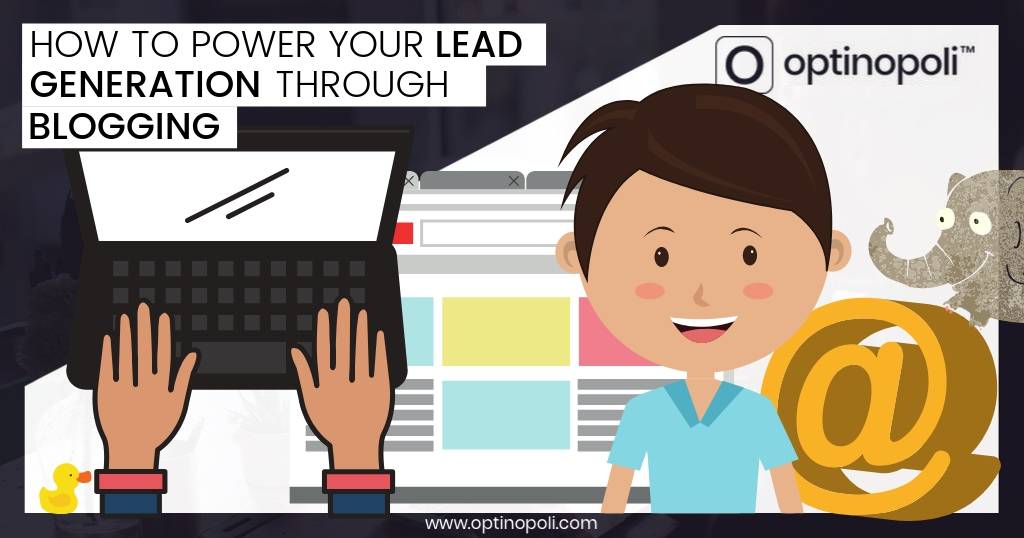
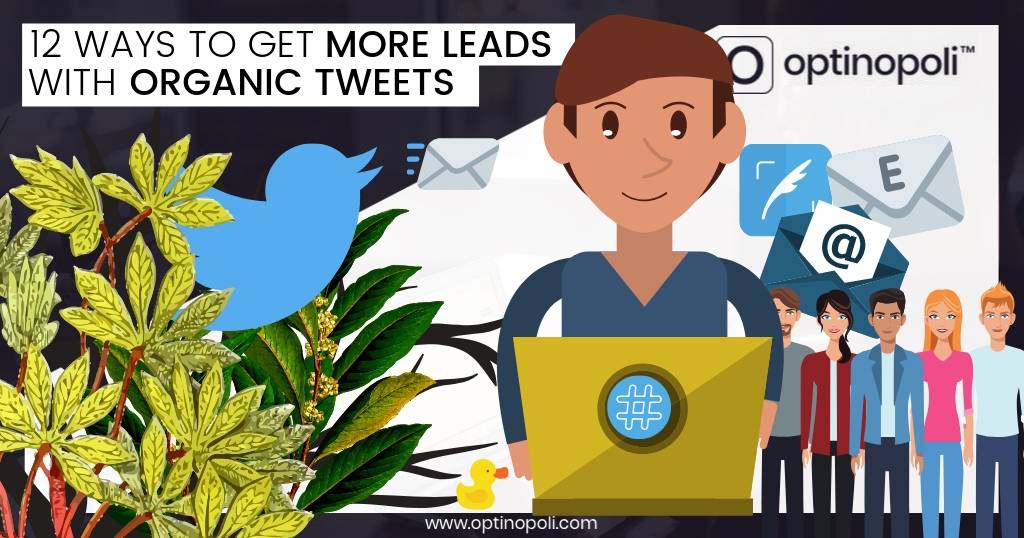
Comments